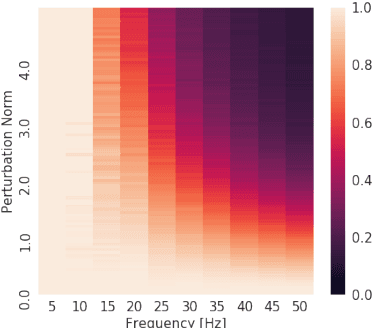On the Spectral Bias of Neural Networks
Paper and Code
Oct 17, 2018



Neural networks are known to be a class of highly expressive functions able to fit even random input-output mappings with $100\%$ accuracy. In this work, we present properties of neural networks that complement this aspect of expressivity. By using tools from Fourier analysis, we show that deep ReLU networks are biased towards low frequency functions, meaning that they cannot have local fluctuations without affecting their global behavior. Intuitively, this property is in line with the observation that over-parameterized networks find simple patterns that generalize across data samples. We also investigate how the shape of the data manifold affects expressivity by showing evidence that learning high frequencies gets \emph{easier} with increasing manifold complexity, and present a theoretical understanding of this behavior. Finally, we study the robustness of the frequency components with respect to parameter perturbation, to develop the intuition that the parameters must be finely tuned to express high frequency functions.
 Add to Chrome
Add to Chrome Add to Firefox
Add to Firefox Add to Edge
Add to Edge